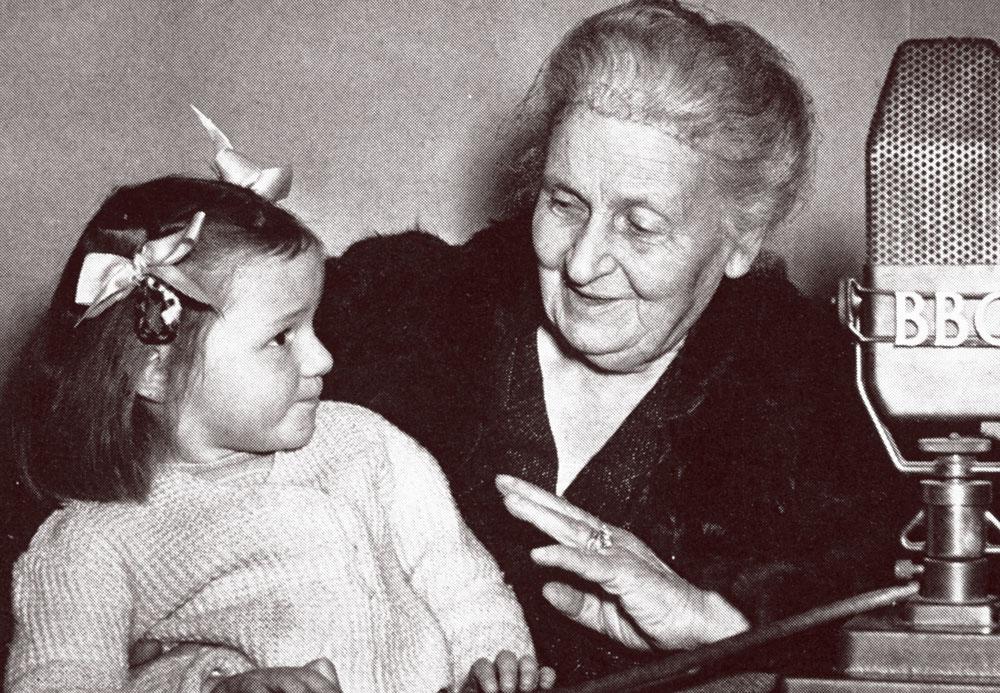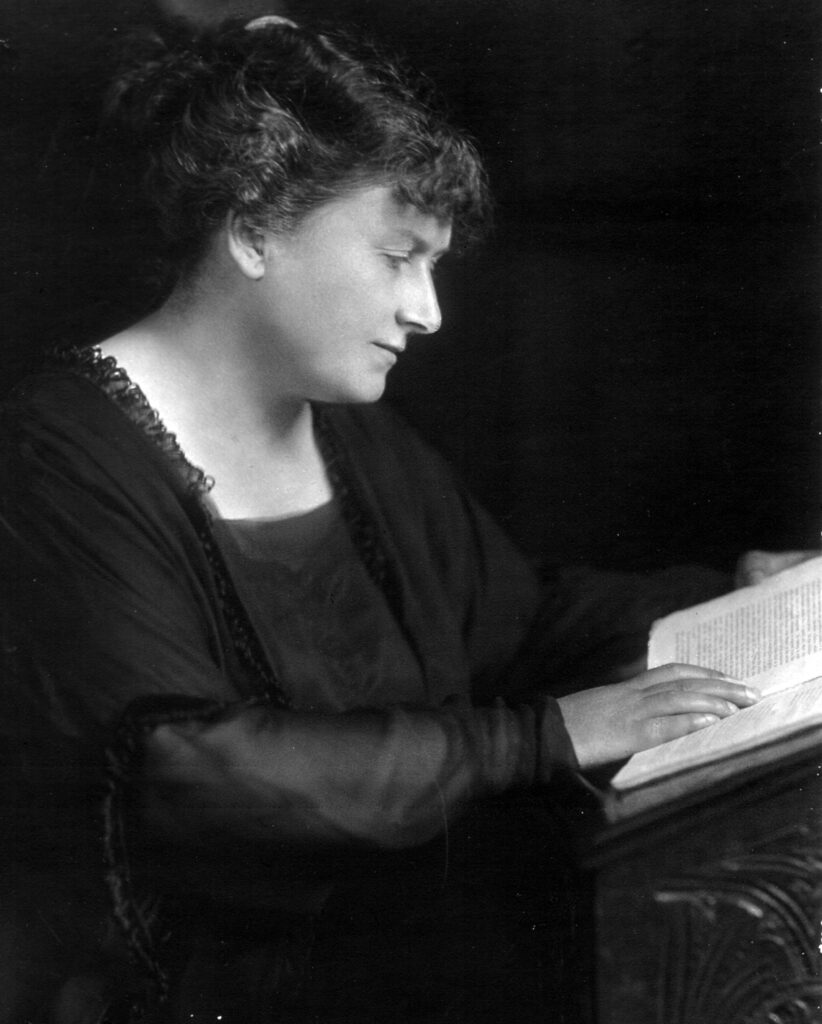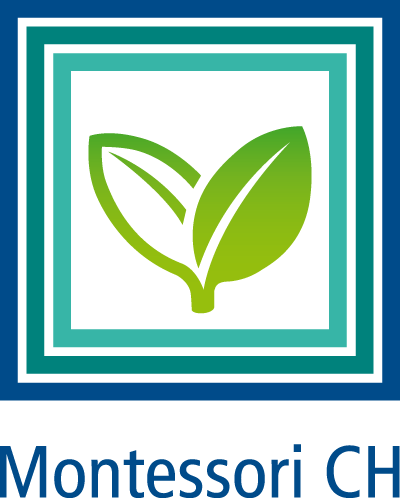Maria Montessori

The essence of Montessori education
Italian physician Maria Montessori developed her approachin the early 20th century based on scientific observationof children.
The most important cornerstones are the independenceof the child, respect for the child and their development,and individualized learning.
Maria Montessori was convinced that every childis intrinsically motivated to learn and has a desire for independence and freedom.
Montessori also observed that children acquire the knowledge they need to develop themselves. This requires a suitably prepared environment and prepared adults.
More relevant than ever
Independence, self-efficacy, self-esteem, initiative, problem solving, creativity, innovation, respect, empathy, sustainability, teamwork.
These are keywords in job advertisementsand skills that people should have in today’s job market.
And they form a large part of the Montessori approach. By being free to develop independently, learn from each other, do things for themselves, and experience things for themselves, children learn the skills that are in demand in 21st-century life and in the job market.
Montessori education is therefore more relevant than ever.

Maria Montessori was born on August 31, 1870, in Chiaravalle, Italy. She was one of the first Italian women ever to successfully complete medical school.
Through her work with children with disabilities in a psychiatric clinic in Rome, Montessori developed an educational approach that led to incredible results for these children. The approach was also successful in working with children without disabilities.
In 1907, Montessori founded the first of her “Casa dei Bambini” (Children’s Houses) in Rome. The success of the Montessori method spread around the world, and Montessori traveled extensively to give lectures on her approach and conduct training courses.
After the fascist regime came to power in Europe, Montessori spent seven years in exile in India.
As an activist, Maria Montessori spent her life fighting for the rights of women and children. She was nominated for the Nobel Peace Prize three times.
Today, Montessori education is used in more than 25,000 schools around the world and in more than 140 countries.
